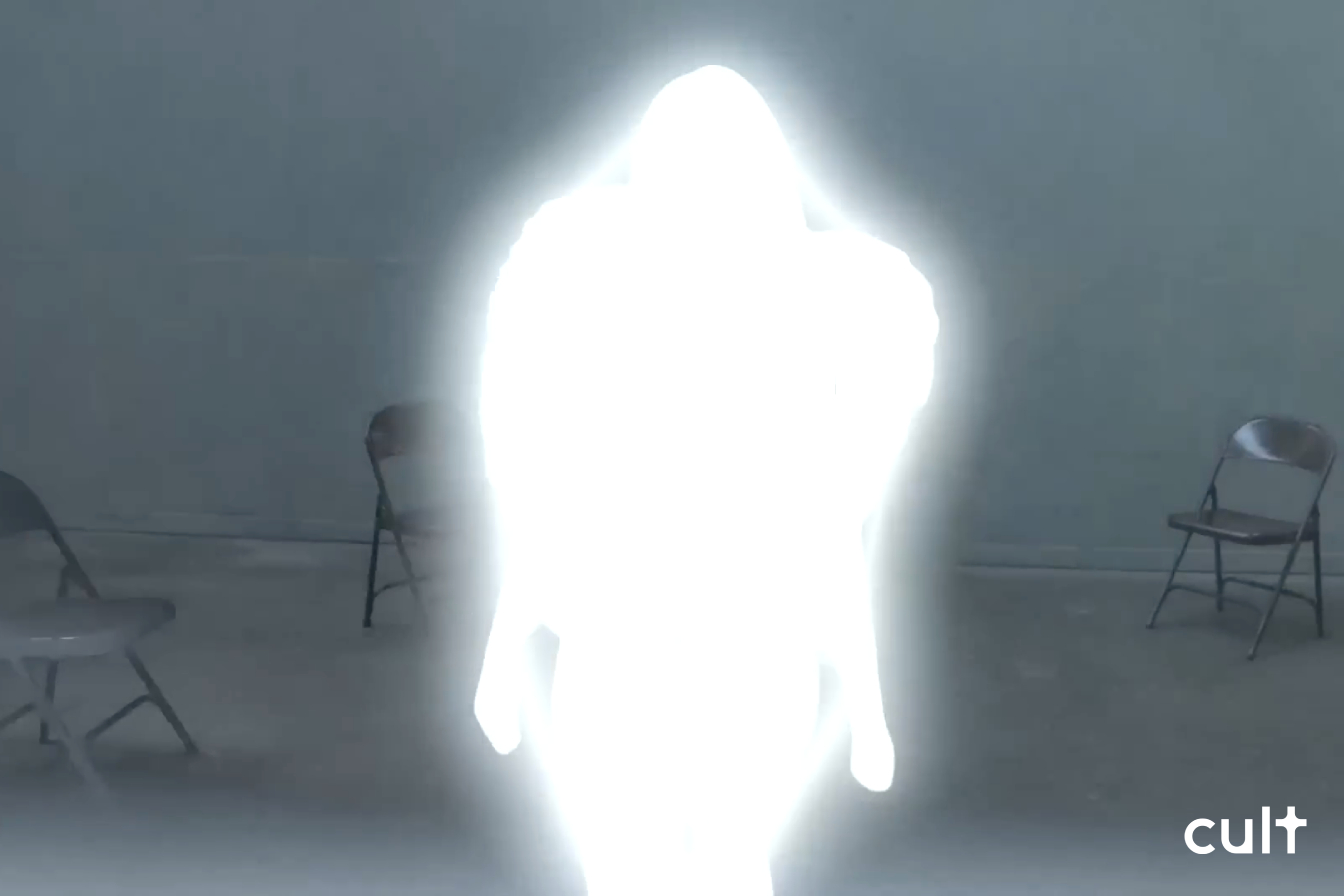What happens to spiritual longing when it’s severed from tradition but still seeks sanctuary? Where do mystics go when their cathedrals are data centers and their relics are jpgs? Joanna Kuchta is attempting to answer these questions—not through dogma, but through aesthetic. Her trajectory from Tumblr ingenue to techno mystic is more than a rebrand; it’s a meditation on visibility, divinity, and the spectral beauty of modern alienation.
Joanna Kuchta didn’t just ride the Tumblr wave of the mid-2010s—she helped shape it. Her images, both immaculate and intimate, crystallized an internet aesthetic that oscillated between angelic detachment and diaristic vulnerability. A platinum-blonde Polish teen exiled in Irish suburbia, she cultivated a cyber persona that was both aspirational and eerily familiar. Kuchta’s face—pale, poised, framed by sunlit bedrooms and blunt captions—was the prototype for a generation of soft-focus self-mythologists. But what many took for surface was, even then, an early experiment in self-archiving.
Today, she has reemerged not just as a DJ or electronic music producer but as a theorist of space, sound, and affect. Her DJ sets, recorded in what she calls “liminal spaces”—subway stations, defunct video stores, fluorescent-lit office buildings—are less party moments and more aesthetic interventions. In these uncanny interiors, Kuchta appears in uniform: white button-up, black tie, plaid skirt—a gothic schoolgirl relic coded with irony and intent. She is less performer than apparition, a wandering NPC in a glitching Y2K video game.

Her latest single “Disappear,” a spectral slice of drum and bass, emerges from a particularly intimate void: the upper deck of an N55 night bus winding through London. The lyrics unfurl like the residue of a lost text message, written in a fugue of emotional exhaustion and unrelenting nostalgia. “It’s about wanting to disappear—but also about wanting to be held,” she tells us. The song, produced with the sonic delicacy of someone attuned to urban melancholia, evokes Burial as much as it does an internet-age love letter.
“Maybe the divine isn’t in the clouds. Maybe it’s in the network.”
But to understand Kuchta’s current work, you have to reckon with her spiritual wiring. Raised Catholic, she still identifies with the religion—though her devotion is now filtered through digital symbology and coded language. “Maybe the divine isn’t in the clouds. Maybe it’s in the network,” she says, gesturing toward what she terms the “digital divine.”
This fusion—between liturgical iconography and cybernetic intimacy—isn’t gimmick. It’s autobiographical. Kuchta moved from Eastern Europe to a conservative Irish town where she didn’t fit. Her early formation was shaped not by community, but by code: message boards, Tumblr, pre-Instagram aesthetics. Rosaries and dial-up tones. Sacred incense and forum avatars. That duality—of flesh and fiber optics—is now embedded in her music and visuals.

The video for “Disappear,” directed alongside her long-time collaborator and partner Rudy Grazziani, is an extension of this liminal theology. There are no obvious plotlines, only atmospheres: flickering lights, temporal glitches, the cold interiors of a world that’s always watching. Her music doesn’t seek resolution. It lingers in the suspended space between presence and absence, intimacy and detachment.
It’s about showing, with precision and aesthetic intent, what it means to feel too much in a world that feels like nothing.
When asked whether she ever truly wants to “disappear,” Kuchta is unequivocal: “No, not from the internet. Not yet.” There’s something both radical and poignant in her refusal to vanish. She acknowledges the void but insists on making art from inside it. The same drive that compelled her to post on Tumblr as a teenager now compels her to build sonic and visual worlds: “Music, for me, is like building a world outside myself. It’s everything that’s swirling inside me made real.”

Kuchta’s visibility isn’t about ego; it’s about articulation. It’s about showing, with precision and aesthetic intent, what it means to feel too much in a world that feels like nothing. She is one of the few creators who has managed to maintain coherence across platforms, mediums, and eras—without ever becoming a parody of herself. Her Instagram isn’t an archive of clout but an evolving mise-en-scène. Her music isn’t trend-hopping; it’s inner excavation.
In an era where spirituality, identity, and digitality are undergoing radical renegotiation, Joanna Kuchta stands not as a nostalgic relic of Tumblr past but as a cartographer of our haunted, glitch-ridden present. A mystic in the machine, mapping sacredness in signal loss.



